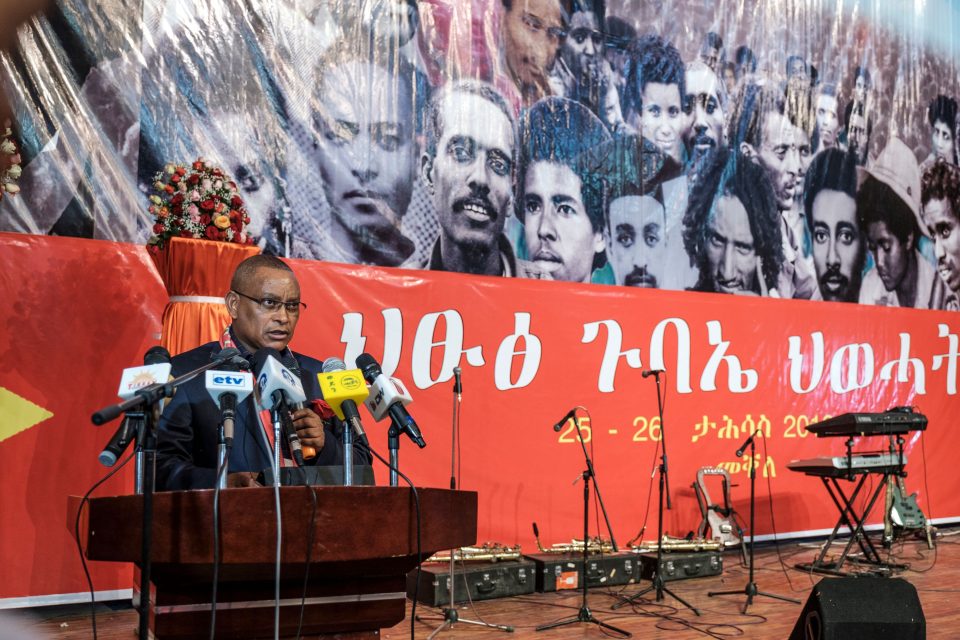A party that overshadowed Ethiopian politics for almost three decades is now a spent force after waging a two-year war against the federal government and then signing a peace deal that requires it to disarm.
The Tigray People’s Liberation Front led a rebel alliance that toppled Ethiopia’s Marxist military rulers in 1991 and dominated the national government until it was sidelined by newly installed Prime Minister Abiy Ahmed in 2018. It continued to rule the northern Tigray region, and a succession of disagreements with the national authorities culminated in the conflict that claimed thousands of lives before the African Union brokered a cease-fire last week.
The detente, agreed on after 10 days of talks in South Africa, followed weeks of heavy fighting that ensued after a previous cease-fire negotiated in March unraveled. Thousands of federal troops, backed by their allies from neighboring Eritrea, won control of several Tigray towns and were converging on the regional capital of Mekelle.
Senior Ethiopia and TPLF commanders began meeting in Nairobi on Monday to discuss the disarmament of the dissidents and their integration into the armed forces. While Abiy’s supporters have hailed the peace accord as a victory, its signing has angered many Tigrayans, who have questioned their leaders’ objectives.
The suffering the war has caused for the Tigrayan people may have forced the TPLF to accept “capitulation as the best outcome,” said Kjetill Tronvoll, a professor at the Oslo New University College and an expert on Ethiopian politics. The cease-fire “reads more as an agreement of capitulation, than as a joint compromise peace agreement,” he said.
Much of Tigray has been reduced to rubble by the fighting and millions of people require food aid and lack basic services. The region will need almost $20 billion to rebuild infrastructure, education and health facilities, and restore the population’s livelihoods, according to Redwan Hussien, Abiy’s national security adviser.
Read more: The Two-Year Conflict That’s Torn Ethiopia Apart: QuickTake
Once the disarmament process is completed, the government intends to establish a transitional leadership structure in Tigray pending the staging of elections in the region.
While the TPLF has been designated as a terrorist organization by parliament, the federal government is planning on approaching the legislature to reconsider its position, according to Redwan. “There may be opportunities for TPLF to run as a civilian political party,” he said.
Jordan Anderson, a senior analyst at S&P Global Market Intelligence, sees the end of the war and the disarmament depriving the TPLF of its sole remaining defining purpose: defending Tigray against what it sees as domination by the national government.
“Through the present peace deal, the TPLF leadership has secured its own survival, but Tigray as a region has precious little else to show for two years of devastating conflict,” he said.
©2022 Bloomberg L.P

